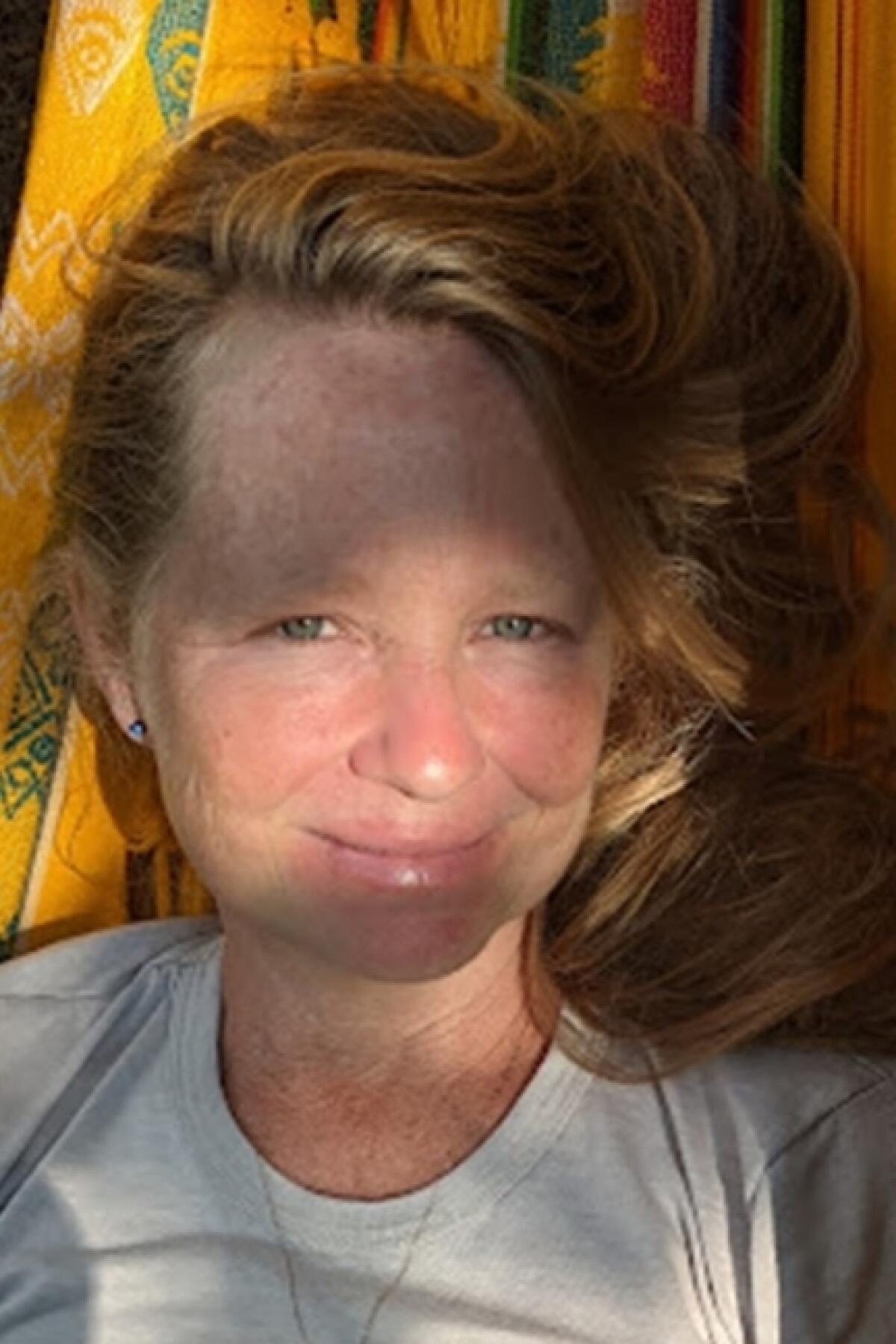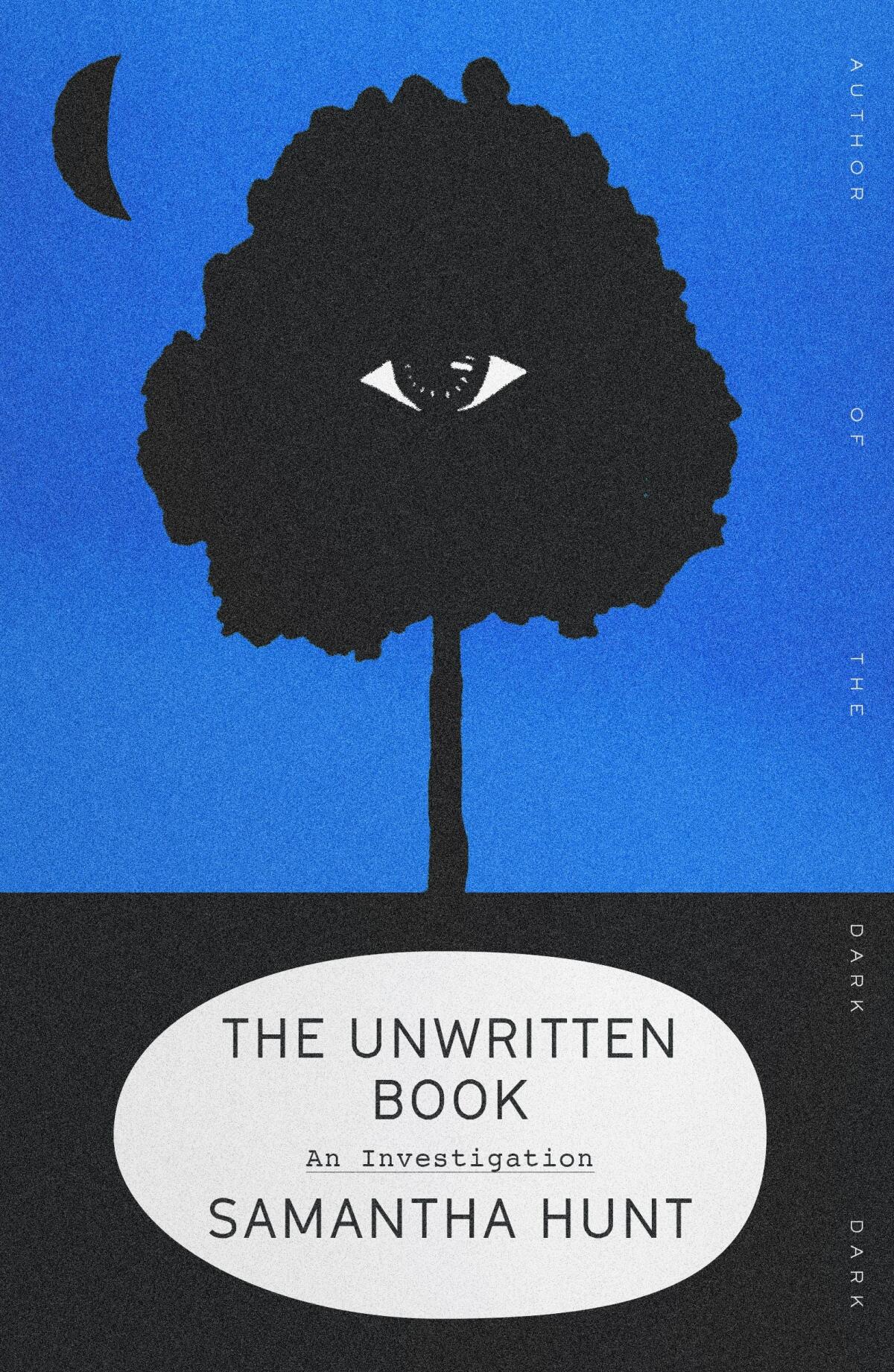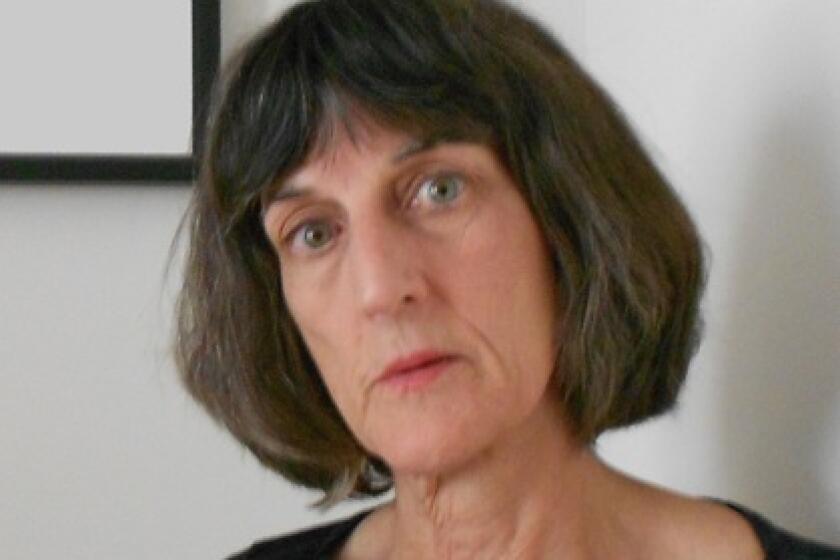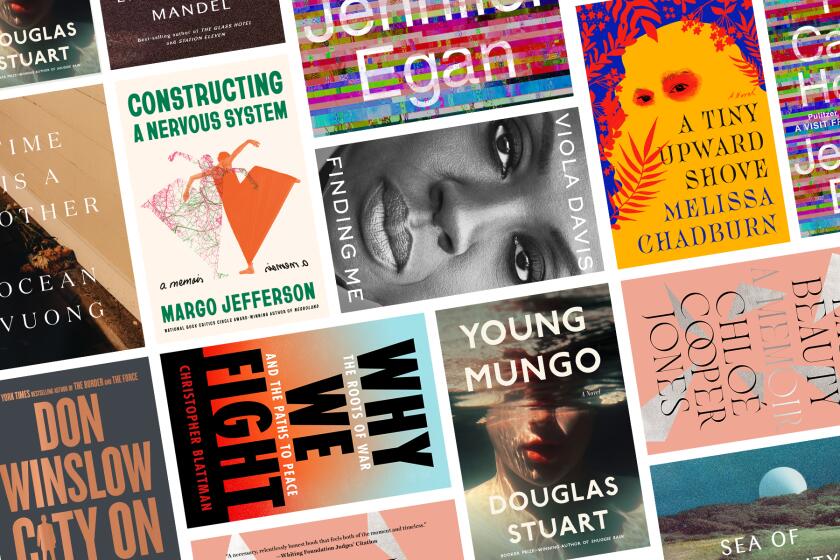Review: Why a writer of ghost stories took on her late father’s unfinished novel

On the Shelf
'The Unwritten Book: An Investigation'
By Samantha Hunt
FSG: 384 pages, $28
If you buy books linked on our site, The Times may earn a commission from Bookshop.org, whose fees support independent bookstores.
Recently, a few days before the third anniversary of my uncle’s death, I visited Philadelphia’s Curtis Institute of Music, where my grandmother — his mother, who died four months after him — had once studied piano. As I approached the conservatory, I silently asked her for a sign to show me she was there. Immediately two birds swooped so close to me that their wings almost brushed against my face, and I watched as they flew up to a tree bursting with white flowers. It was eerily similar to a tree I’d looked at just after learning my uncle had passed away. The living search for signs — for answers — just as we do when we read books.
This search forms the backbone of “The Unwritten Book,” Samantha Hunt’s first work of nonfiction, which contains a book within a book — chapters of an unpublished novel written by her late father about a secret society of people who can fly without wings. “I carry each book I’ve ever read with me, just as I carry my dead—those things that aren’t really there, those things that shape everything I am,” Hunt writes. Some of those are referenced throughout, including the work of W.G. Sebald, who died in the same year as her father. “[Sebald’s] death was the start of the ghost books,” she writes, “the start of my imagining all the books dead authors would never write because they had died too young.”
Hunt is the author of four works of fiction with fabulist leanings, including the novel “Mr. Splitfoot” and the story collection “The Dark Dark,” of which Carmen Maria Machado wrote, “Horror and strangeness are her allies.” “The Invention of Everything Else” incorporates a time machine into a novel that’s partially about Nikola Tesla, the engineer known for inventing alternating current electricity. “The Seas,” Hunt’s debut novel, features a main character who believes she is a mermaid.
In her expansive and inventive new book, Hunt uses her father’s incomplete manuscript as a vessel to communicate with him 20 years after his death. Walter Hunt was many things: a father of six, a husband, an editor at Reader’s Digest, a man who found solace in clues, an alcoholic and then a man in recovery. “The spirits, both booze and the dead, have a lot to do with my family,” Hunt writes.
“What’s the difference between living and imagining?”
To attempt to categorize “The Unwritten Book” is to diminish the effect of reading it. Hunt studied geology, and her fascination with the bedrock of the natural world overlaps with her elemental love of storytelling. “Denying death is foolish, I know, but there’s still a part of me, a very immature part of me, that believes my dad would still be alive if I’d kept him better wrapped up in stories,” she writes. In her table of contents, Hunt notes the theme of her book: “How We Are Haunted.”
Walter’s unfinished book is both a ghost and a springboard. Hunt annotates his chapters with her own thoughts on the opposite page — a daughter in conversation with a father but also a writer speaking with her readers. “The dead leave clues, and life is a puzzle of trying to read and understand these mysterious hints before the game is over,” Hunt writes. “Even if these clues are not coming from the dead. Even if I’m making the whole thing up.”

The author fixates on numerous signs and ideas: books, words, what it means to be a mother. “What makes a new mother experience such an expanded reality? Proximity to death, proximity to life,” she writes. But there are more topics to ponder: objects she owns that belong to ghosts (such as her father’s glasses, lost in the compost for 15 years but somehow recovered intact); an ancestor named Ella who was institutionalized after running away from home; the boy band One Direction.
Then there is a reference book of her father’s, Joseph Twadell Shipley’s “Dictionary of Word Origins,” which she calls a divination tool. For the word phantom, Shipley suggests looking at the entry for “focus.” “Clarity is a lot to ask from someone who can no longer breathe,” Hunt writes. “But I could read my dad’s writing. I could make interpretations and solve mysteries. I could build references ... my dad had changed but he’d left behind clues, building materials. I didn’t eat my father’s book, I devoured it.”
The novelist Kathryn Davis’ memoir, ‘Aurelia, Aurélia,” is a Virginia Woolf-inspired whoosh of experiences in the aftermath of her husband’s death.
“The Unwritten Book” is by turns mesmerizing, philosophical and funny. In one amusing chapter, Hunt visits a medium to ask Charlotte Brontë’s ghost for a blurb for her new book. (Spoiler: Brontë has lost her eloquence in the afterlife.) In another section, she entertains hauntings hiding in the plain sight of living:
“We are well-versed in la petit mort, the French euphemism for orgasm, but we fail to consider all the other small expirations, tiny deaths we suffer: trimming our nails, scratching dry skin, crying, spitting, peeing, farting, bleeding, birthing. And what of the more complex unravelings of our minds, those thoughts that spin away from us? Sometimes I can’t stop talking, letting my insides out. Sometimes the reason I write is in order to get the language out of my body.”
Hunt believes that if we understood where we came from, we’d be less afraid of returning to the dirt. There’s an encyclopedic exuberance to her approach, a willingness to engage with a subject that is universal but mostly dreaded, and, in doing so, to make connections we might otherwise miss.
“Keep the absent present,” she writes. “That’s the whole story, the holes. Stay broken, stay open.” When I looked at those birds, that flowering tree, I knew exactly what she meant.
Bethanne Patrick’s April picks include highly anticipated novels from Jennifer Egan, Emily St. John Mandel, Don Winslow and Douglas Stuart.
Filgate is a writer and the editor of the anthology “What My Mother and I Don’t Talk About.”
More to Read
Sign up for our Book Club newsletter
Get the latest news, events and more from the Los Angeles Times Book Club, and help us get L.A. reading and talking.
You may occasionally receive promotional content from the Los Angeles Times.








